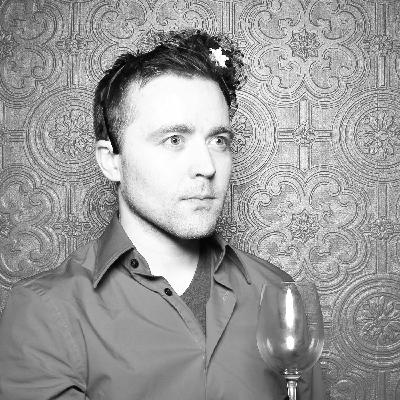The Revolution Will Not Be Posted
Description
There was a time, a darker, less enlightened time, when people believed that revolution happened in the real world. That change required effort. That systems of power were physical things, concrete, steel, bodies in the street, requiring equally physical disruptions.
How foolish we were.
We now know the truth: nothing real happens in reality.
Midwest Existentialism - Brendon Lemon Official is a reader-supported publication. To receive new posts and support my work, consider becoming a free or paid subscriber.
History will not remember who showed up. It will remember who posted. It will remember who went viral. It will remember whose infographic got the most shares. Because, let’s be honest, no one has the time to physically organize. No one has the stamina to go outside (ew). And no one has the budget for real-world activism, when the only movement that matters is upward in engagement metrics.
Some people still believe that revolution is a material struggle, that systems of oppression are held up by laws, wealth, and force; and that dismantling them requires tangible resistance. But those people? Those people aren’t thinking like digital strategists. Because the real revolutionaries of our time aren’t storming palaces. They’re replying with memes. They’re harnessing the algorithm. They’re securing brand partnerships. And if you’re not doing the same, then what are you even fighting for?
Take any so-called "revolutionary moment" in history—any uprising, movement, or turning point. Then ask yourself: What was the engagement rate? Did it have sponsorship opportunities? Was it scalable? Because if your revolution isn’t optimized for digital platforms, if it isn’t built for postability, then congratulations, you’ve just wasted your time.
Huey P. Newton wrote in Revolutionary Suicide, “The first lesson a revolutionary must learn is that he is a doomed man.” But let’s be honest, that kind of bleak, martyr complex thinking is exactly why the Black Panther Party never secured a brand deal. A modern revolutionary must accept that a truly effective movement requires not sacrifice, but scalable monetization.
Even Che Guevara, who spent years hiking through jungles, training guerrilla fighters, and toppling governments, wasted a catastrophic amount of time offline (barf). Had he played it smarter, he would have realized that “A guerrilla fighter needs full knowledge of the terrain on which he moves” applies far more effectively to social media feeds than to any real-world battlefield. Imagine the traction he could’ve gotten with a viral TikTok series titled "POV: You Just Realized Imperialism Is the Enemy." Literally millions of views!
Yet these figures remained trapped in the past, convinced that the world could only be changed through direct action in physical space (stupid), a tragic misunderstanding of where real power actually resides. They spent their time mobilizing people, organizing supply chains, and resisting systemic oppression, when they could have been securing influencer collaborations and boosting their visibility through paid ads.
And that’s the real shame of it. Because if they had simply focused on optimizing their content for maximum reach, they could have built something far more enduring than any revolution.
They could have built a platform.
Of course, some outdated thinkers, men tragically unverified on any platform, still insist that political power is built through physical struggle (so dumb). That change requires people to meet in person (ugh), build movements through direct action (gross), and take steps that are non-digital and thus entirely untrackable by engagement metrics (yuck).
Lenin, for example, made the colossal mistake of writing:
"There are decades where nothing happens; and there are weeks where decades happen."
Which is a quaint idea from a pre-viral era, but ultimately deeply inefficient. Lenin wasted weeks trying to organize workers when he could have crafted a high-impact Twitter thread that distilled his entire political project into 280-character knowledge bombs. Imagine how much easier the Russian Revolution would have been if he had simply A/B tested slogans until he found one that performed well organically.
Leon Trotsky, another terminally offline individual, once wrote:
"Revolutions are always verbose."
Wrong. Revolutions today must be optimized for attention spans. The modern revolutionary knows that actual verbosity is a death sentence for engagement rates. If you can’t fit your entire ideology into a single slide on an Instagram carousel, then frankly, your movement isn’t serious about power.
And then, of course, there’s Dr. Martin Luther King Jr., who wrote in Letter from a Birmingham Jail:
"Human progress never rolls in on wheels of inevitability; it comes through the tireless efforts and persistent work of men willing to be co-workers with God."
Yawn. Imagine how much more engagement this would have gotten as a branded infographic with a clean sans-serif font. What was he doing in jail, writing longhand letters, when he could have been doing a live Q&A on X sponsored by Squarespace? Had he thought ahead, he could have monetized his activism, launched a newsletter on Substack, and secured a Davos invite to have meaningful conversations with JPMorgan executives about racial equity in fintech.
And let’s not forget Che Guevara, a man who tragically understood the importance of aesthetic branding (the t-shirts! the posters!), but never capitalized on platform monetization. He once wrote:
"The revolution is not an apple that falls when it is ripe. You have to make it fall."
Again, this is why the left keeps losing. Because today, the real revolution isn’t about waiting for apples to fall or even shaking the tree. It’s about owning the tree’s content pipeline, turning that tree into a revenue-generating subscription model, and securing brand deals with organic cider companies to maximize ethical monetization.
And yet, these figures failed to understand what modern movements have finally gotten right:
True revolution doesn’t happen in the streets. It happens on the For You Page.
They spent their time mobilizing people, organizing supply chains, resisting systemic oppression, when they could have been leveraging sponsored partnerships with major financial institutions to really create change. Just like Bono and U2 have done for years.
Because if you’re not winning the algorithm, then you’re not winning anything at all.
But of all the misguided revolutionaries who misunderstood where real power lies, perhaps no one squandered their moment more catastrophically than Luigi Mangione.
Luigi had everything he needed to reach maximum cyberspace virality: He had a great story with a cause, a villain, and a moment of crisis ripe for catching the algorithm. And what did he do?
He threw it all away in meatspace. (Disgusting.)
Instead of playing it smart, instead of leveraging the attention economy, Luigi took action in real life (dumb). And as a result, his impact was messy, unmeasurable, and worst of all, completely un-monetizable.
Had Luigi been thinking like a real digital revolutionary, he would have realized that Brian Thompson, far from being an enemy, was actually his most valuable content asset. The real move, the high-ROI engagement strategy, would have been to pivot his entire grievance with the insurance system into a brandable, viral-ready content funnel.
Here’s what he should have done:
* Start a podcast. Title: This Is Sick: A Podcast on America’s Healthcare Crisis. Subtitle: Sponsored by UnitedHealthcare™.
* Book Brian Thompson as his first guest. A civil, televised, corporate-sponsored debate on America’s broken (but profitable!) healthcare system.
* Live-stream it on all platforms. Monetize the debate in real time.
* Sell ad space to pharma and private equity firms. (Because if you don’t let them speak, how will we ever have a real conversation?)
* Capitalize on the moment with merch. Limited edition This Is Sick hoodies. “Single-Payer Healthcare Is For Beta Males” coffee mugs. A Kickstarter for a documentary that will never be made.
* Ride the algorithm straight to Davos. Become a thought leader. Get a TED Talk. Shake hands with billionaire power brokers who are actually positioned to create change (via high-yield investment vehicles).
Had Luigi done this, he wouldn’t just be a man who took a stand. He would be a man with a brand.
Instead? He threw away his moment. He acted in real life (ugh), in a way that brands could not safely align with. And as a result, he ended up where all poorly strategized revolutions go to die: prison.
No brand deals. No ad revenue. Not even a single NFT collection.
And that is the greatest tragedy of all.
Just imagine how it could have gone. Luigi could’ve invited Brian Thompson onto a multi-platform, live-streamed event, a frank and open discussion about America’s broken healthcare system; one that would have solved nothing but trended #1 worldwide. The audience would have been record-breaking. The ad revenue? Astronomical. Because, really, who has more to say about America’s fractured and inefficient healthcare industry than America’s largest insurance and pharmaceutical conglomerates?
Pfizer, Moderna, UnitedHealthcare, Cigna, BlackRock, all fighting with each other for











